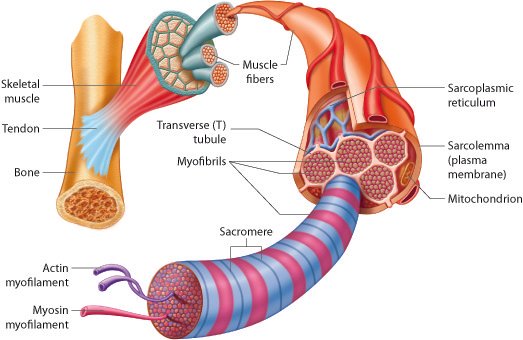Every part of our body is made up of chemicals from the blood, brains, organs, and even the skin. Some of these chemicals are well known to us while we do not even know that our body produces or have anything to do with some. It is not a big deal not to know these things as I didn't know some of them until a few months ago and I just even learned about some when I had to read up on them but you will be amazed at the number of chemicals that are in your body and their functions.
We usually think of our hormones and neurotransmitters especially the common ones as the only chemicals in the body but while dopamine is a chemical responsible for motivation and happiness, chemicals like alpha-ketoglutarate which isn't mentioned often is responsible for energy creation. So let's discuss these body chemicals.
If you are familiar with the chemical used in making polish remover and paint thinner, then you would be familiar with the chemical Acetone. When exposed to acetone at a high concentration, it could lead to rashes in the skin and skin irritation but while this happens outside the body, do you know acetone is a chemical that is created in the body?

nursinghero
The major source of energy for us humans is carbohydrate stored as glucose in the cells but in cases where we perform exercises for extended period and you are not having enough glucose to produce energy, then the body starts to look for other way of making this energy including breaking down fat which becomes ketone bodies that has acetoacetate as one of the compound that makes up ketone bodies. Acetoacetate then becomes Acetone but the body doesn't need it for anything, so it is usually removed from the body so it doesn't lead to blood acidity.
If I asked about your thought on formaldehyde, and if you would allow it touch your skin, you wold say no because it is the chemical used to preserve dead animals and human corpses, and it has been known to cause cancer when exposed to it for a very long time, but do you know that your body produces Formaldehyde?
Formaldehyde keeps tissues rigid and prevent chemical reactions that would break down tissue structures in a process known as fixation. In the body, the cells produces formaldehyde during certain metabolic process such as when new tissues are being made after the old one has been broken down. In the body, formaldehyde is converted into formate which are part helps in creating the proteins Adenine and Guanine that are building blocks for DNA. Once this is done, the chemicals are broken down and passed out through urine from the body.
Another chemical our body produces is found in the stomach and it is known as Hydrochloric Acid. The Stomach acid is almost the same pH as Battery acid, and that is enough to help us in breaking down food so they can be used up further as molecules. This acid produced by the stomach is so strong hat it can eat up the stomach itself and to prevent this from happening, the stomach is covered with layers of mucus containing Bicarbonate ions neutralizing the harsh nature of the acid.

getarchive
I have discussed acids, so let me mention a base that is produced in the body which is Ammonia. Commonly used as fertilizer, and a major ingredient in cleaning agents, ammonia is found in our body and it is used to metabolize proteins. Ammonia function in the body doesn't end there as it is also used in the kidneys to prevent acid buildup in the kidney. To prevent the excessive amount of the base in the body, the liver breaks down excessive ammonia into Urea and it is passed out with urine. Let's not forget that urea is one of the major component of urine.
The body is in the business of creating and using chemical compounds to keep us alive. Asides from the ones I mentioned above, the body produces other chemicals like Hypochlorous acid, hydrogen peroxide, and even drugs like Endocannabinoids, DMT, and even phosphocreatine which is a compound found as Creatine in workout supplements.
Reference
https://pmc.ncbi.nlm.nih.gov/articles/PMC3519217/
https://www.atsdr.cdc.gov/ToxProfiles/tp21-c1-b.pdf
https://www.medicalnewstoday.com/articles/what-is-acetone
https://www.webmd.com/diet/what-is-acetone
https://www.americanchemistry.com/chemistry-in-america/chemistries/formaldehyde
https://www.ncbi.nlm.nih.gov/books/NBK597648/
https://www.sciencedirect.com/science/article/abs/pii/S2468202017301456
https://www.ncbi.nlm.nih.gov/books/NBK279304/
https://www.ncbi.nlm.nih.gov/books/NBK537005/
https://www.ncbi.nlm.nih.gov/books/NBK541039/
https://www.news-medical.net/health/The-Urea-Cycle-Step-by-Step.aspx

Thanks for your contribution to the STEMsocial community. Feel free to join us on discord to get to know the rest of us!
Please consider delegating to the @stemsocial account (85% of the curation rewards are returned).
Thanks for including @stemsocial as a beneficiary, which gives you stronger support.